
Throughout Part 3 of "Every Good Endeavor," we've been seeing how the gospel changes different aspect of our life that ultimately have an impact in our work. For the next several weeks, we're going to be focusing on our motivation for our work and rest from our work.
Earlier in the book, it mentioned how we can't find our identity in our work. We are going to be very disappointed if things negatively change in our work if our identity is our work. A lot of people feel like they need to always be productive -- through our work we try to build our worth, security, and meaning. When we do this, it often leads to burn out. Some people work for the paycheck so they can enjoy "real life." In the book, these motivations are called "work beneath the work." They are the reasons why work can be so physically and emotionally exhausting.
Do you find yourself burnt out in your work? Take this week to identify what your motivators are for your work. Next week, we'll be taking a look at a Biblical example of shifting motivation towards work to give work more meaning.
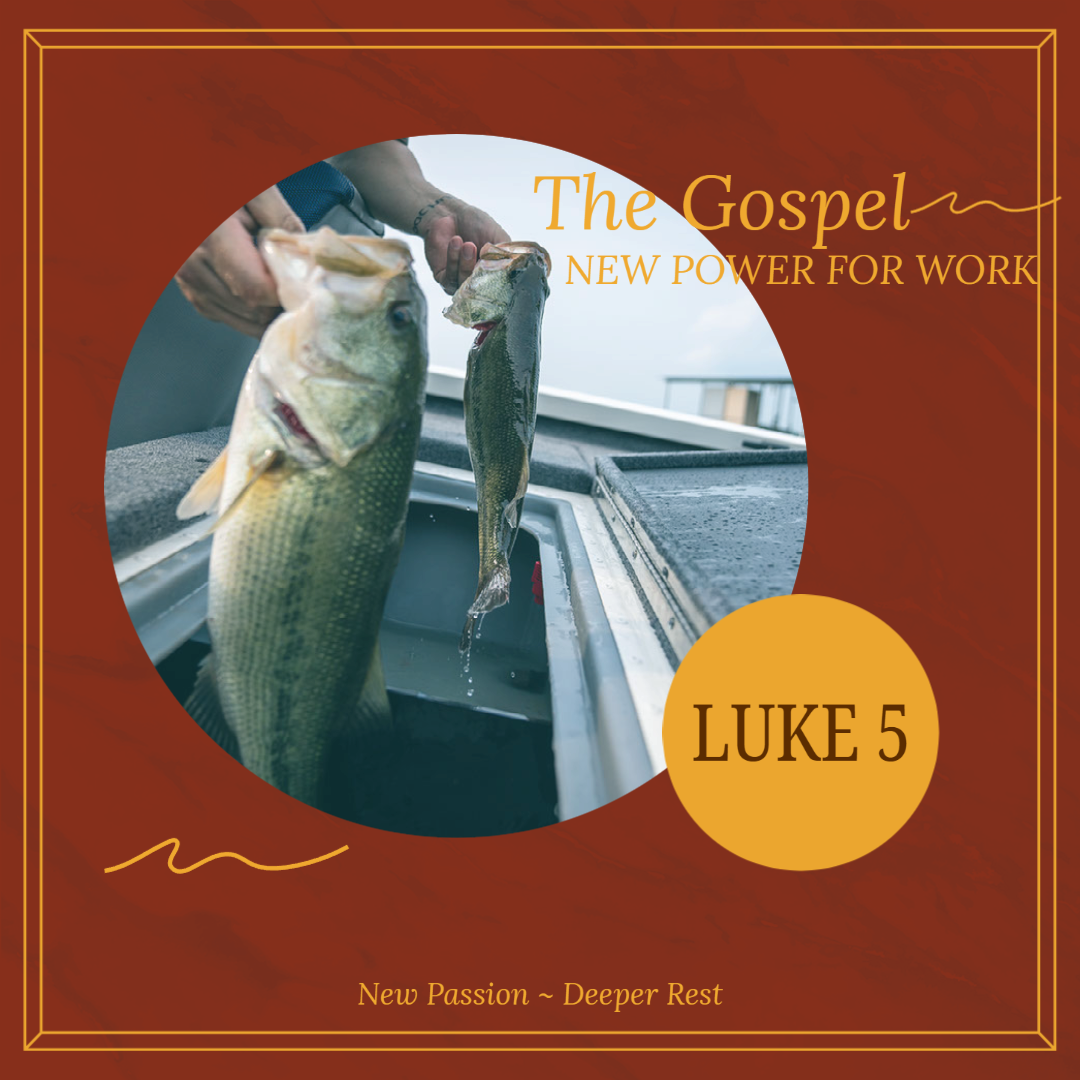
Let's take a look at the beginning of Luke 5, when Jesus calls the first disciples. In this passage, Jesus goes to Simon telling him to cast out his net. This was after he was trying to catch fish all night without success. Simon listened to Jesus, and they ended up catching a lot of fish! After this, Jesus calls Simon, James, and John to follow him. "And when they had brought their boats to land, they left everything and followed him." (Luke 5:11)
Later on, they continue their trade of fishing; however, now they had an identity and significance untethered to their job or status. They were no longer controlled by their work because of Jesus. The same can be true for us if we come to Jesus. We must ask ourselves some tough questions and answer them honestly. (pg 235)
Do we let our work control us to such a degree that we don't even notice when God comes through with a new opportunity?
Do we get our "big catch"---a year-end bonus or next new job---and immediately start focusing on the prospect of the next bigger one?
How can we have any freedom from the temptations of work and still keep our job?
The gospel can give us a new power for work by supplying us with a new passion and a deeper kind of rest. Over the next few weeks, we'll be going deeper into this new passion and deeper rest.
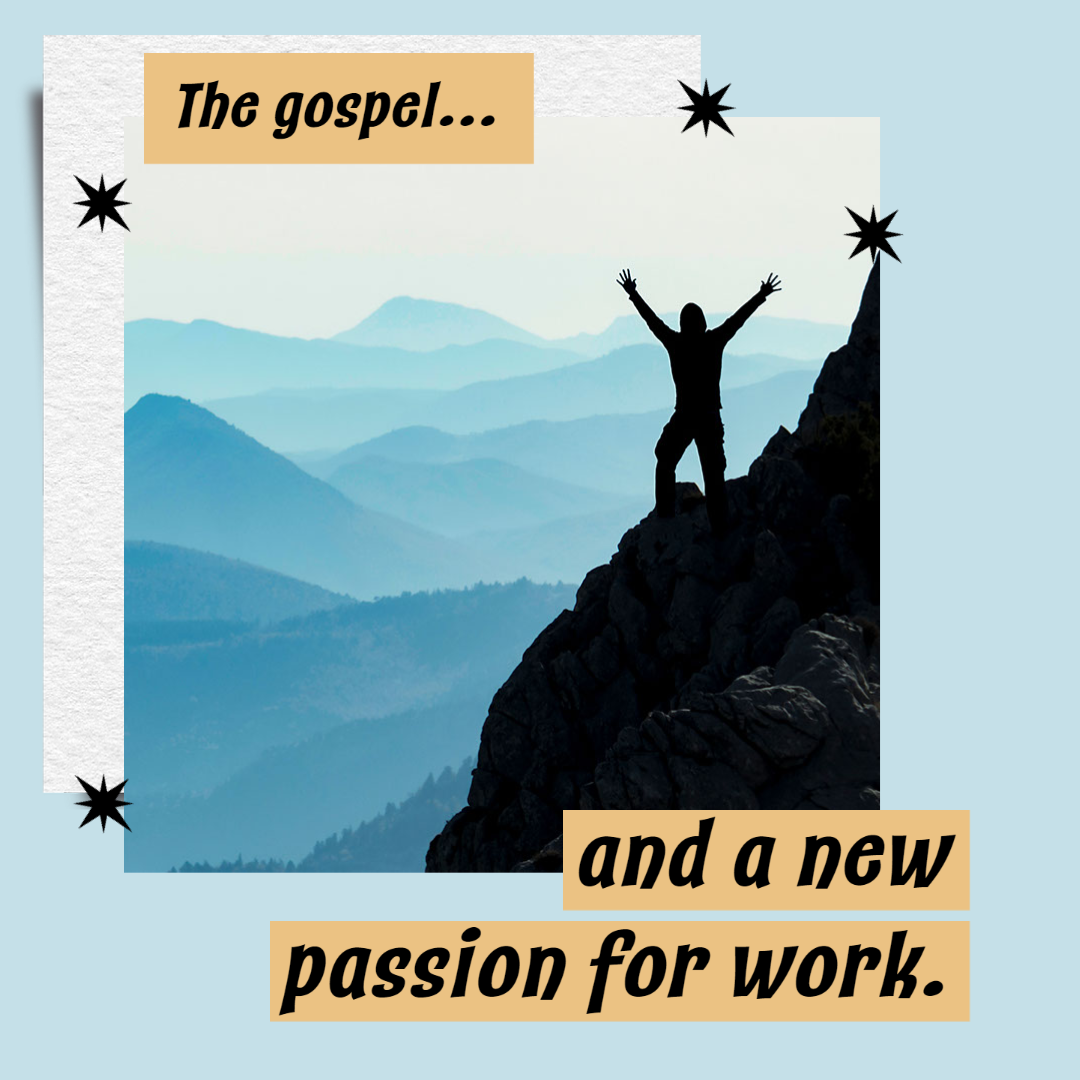
Last week, we talked about the gospel giving us a new power for work by supplying us with a new passion and a deeper kind of rest. Let's first spend some time talking about this new passion.
Passion can help you excel at whatever you do; however, there are different sources and kinds of passion. If your passion is more grounded in fear of failure instead of pursuit of success, it isn't going to be sustainable. If you don't have something bigger than yourself to work for, then your work energy is actually stemmed from one of the deadly sins: pride, greed, lust, envy, gluttony, wrath.
Do you find yourself working hard because of envy to get ahead of someone? Do you work hard because of pride to prove yourself? Do you work hard because of greed or gluttony for pleasure? All of these reasons for working hard are not going to be sustainable over the long-term.
Stay tuned for next week as we discuss a more sustainable passion for work.
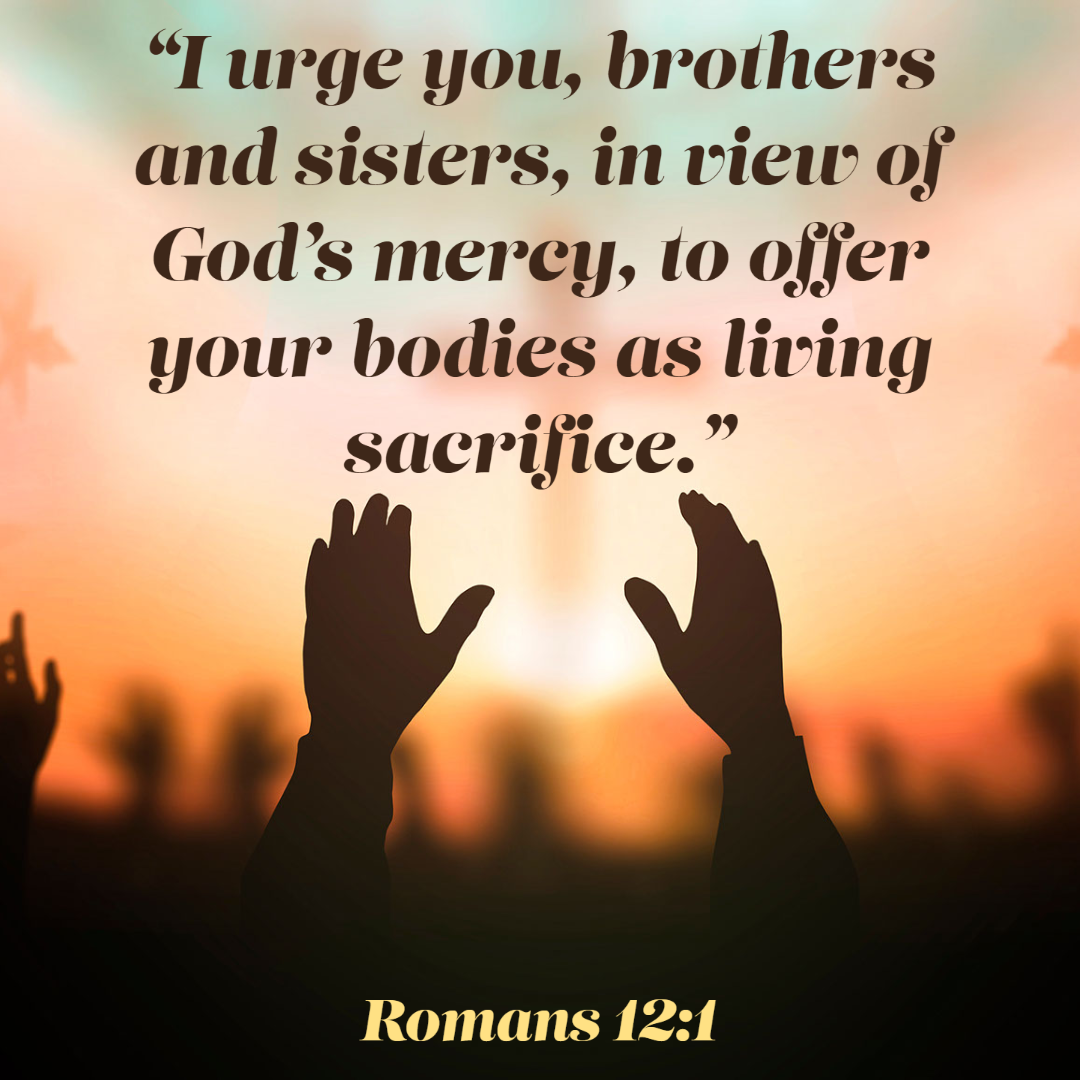
Instead of the selfish passion we discussed last week, we want to have selfless, sacrificial passion seen through the gospel.
Romans 12:1 says, "I urge you, brothers and sisters, in view of God's mercy, to offer your bodies as living sacrifice." What does it mean to be a "living sacrifice"? Typically, sacrifices are dead. This idea of being a "living sacrifice" is to be willing to die to your own interests and living for God.
You'll be amazed at the results when your passion for work comes from selflessness instead of selfish desires!
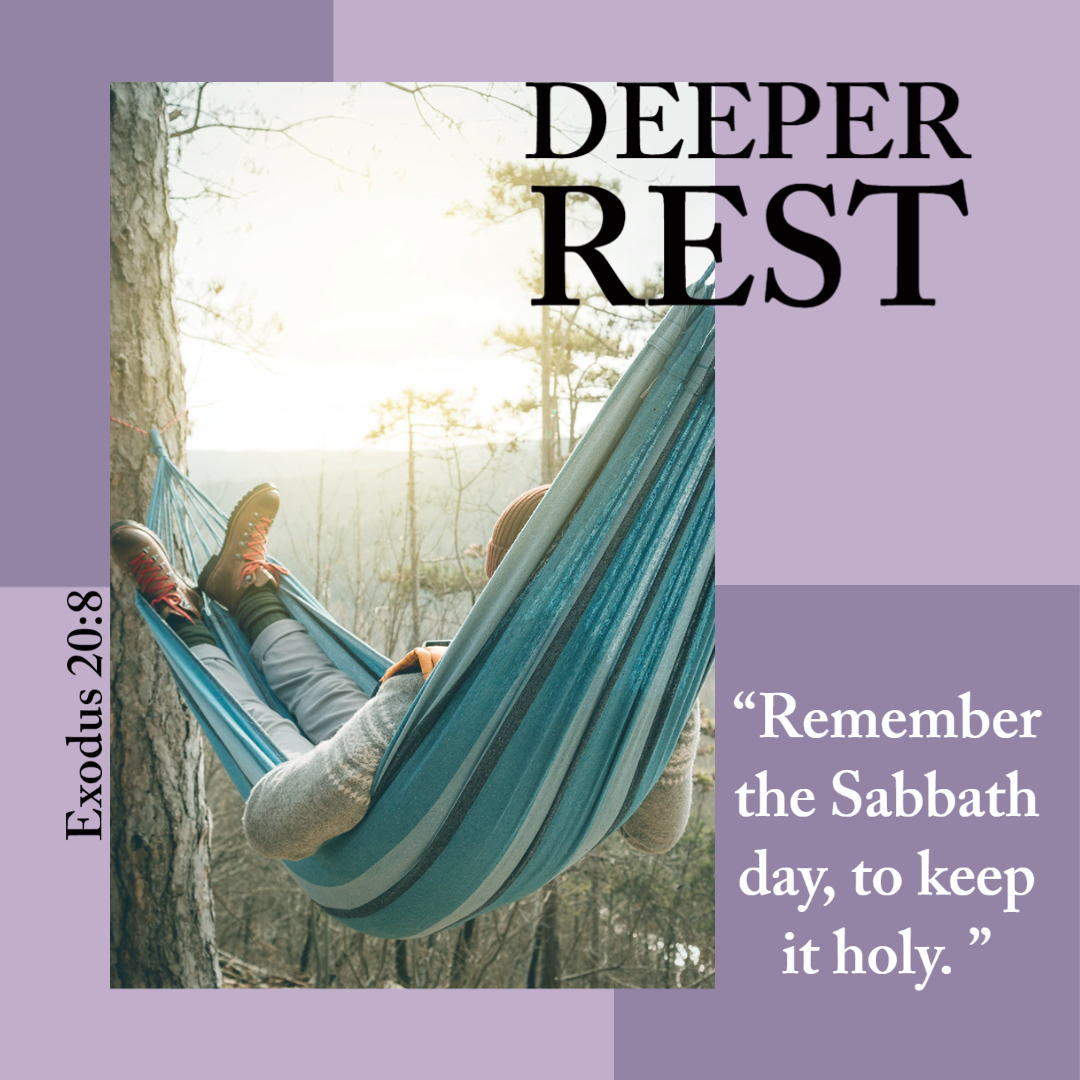
We've been talking about how the gospel gives us a new power for work by supplying us with a new passion and a deeper kind of rest. Make sure to check back at our last 2 posts as we discussed our new passion. Now we've going to move on to talking about this "deeper rest".
Getting rest from work is important to replenish our bodies and minds. Beyond that, practicing the Sabbath is a good way to put work in its proper place. Getting time away from work is important. There is more to life than just work, and oftentimes, getting some distance from work allows you to produce better work when you return.
When we no longer feel like we have to earn our salvation through our work, find our identity through our work, etc. we can have a deeper rest. Let's take a look at Exodus 20 to refresh our minds of what the biblical meaning of the Sabbath is:
"Remember the Sabbath day, to keep it holy. Six days you shall labor, and do all your work, but the seventh day is a Sabbath to the LORD your God. On it you shall not do any work, you, or your son, or your daughter, your male servant, or your female servant, or your livestock, or the sojourner who is within your gates. For in six days the LORD made heaven and earth, the sea, and all that is in them, and rested on the seventh day. Therefore the LORD blessed the Sabbath day and made it holy." (verses 8-11)
This rhythm of work and rest is seen even with God. To rest is a way to enjoy and honor the goodness of God's creation.
Next week, we're going to look at another passage that talks about the Sabbath. Before then, find some time over the next week to actually rest from your work.

Last week, we talked briefly about the Sabbath. Here’s another passage that talks about the Sabbath:
"Observe the Sabbath day, to keep it holy, as the LORD your God commanded you. Six days you shall labor and do all your work, but the seventh day is a Sabbath to the LORD your God. On it you shall not do any work, you or your son or your daughter or your male servant or your female servant, or your ox or your donkey or any of your livestock, or the sojourner who is within your gates, that your male servant and your female servant may rest as well as you. You shall remember that you were a slave in the land of Egypt, and the LORD your God brought you out of there with a mighty hand and an outstretched arm. Therefore the LORD your God commanded you to keep the Sabbath day." (Deuteronomy 5:12-15)
The beginning of this passage is similar to what we read in Exodus; however, at the end, it brings up the past of being slaves. Observing the Sabbath is a declaration of our freedom. You are not a slave anymore -- this could be to culture's expectations, your family's hopes, your school's demands, and even your own insecurities. You should not feel guilty for taking time off. If you're filled with guilt when you take time off, you're never truly going to be able to unplug from your work and experience this deeper rest.
Do you have a hard time fully unplugging from work? Take some time to reflect on why you struggle with taking time to rest from your work. We'll wrap up this "deeper rest" discussion next week.

So far, we've looked at two passages that discuss the Sabbath. We've seen that resting is actually a way to enjoy and honor the goodness of God's creation, and that it is a declaration of our freedom. Finally, the Sabbath is an act of trust.
It can be very easy to get wrapped up in your work and feel like you don't have time to rest. To practice Sabbath takes discipline and faith in God. It's an important reminder that God is the one that keeps the world running, He provides for our family, we can't do anything without Him.
If you're an entrepreneur, you might have an especially difficult time with resting. You must remember that you are not alone in holding up your corner of creation! We must all trust in God to continue to hold things together while we rest.
It's not always going to be easy to do, but you'll be amazed with what God can do in and through your life when you allow yourself to truly rest and unplug!
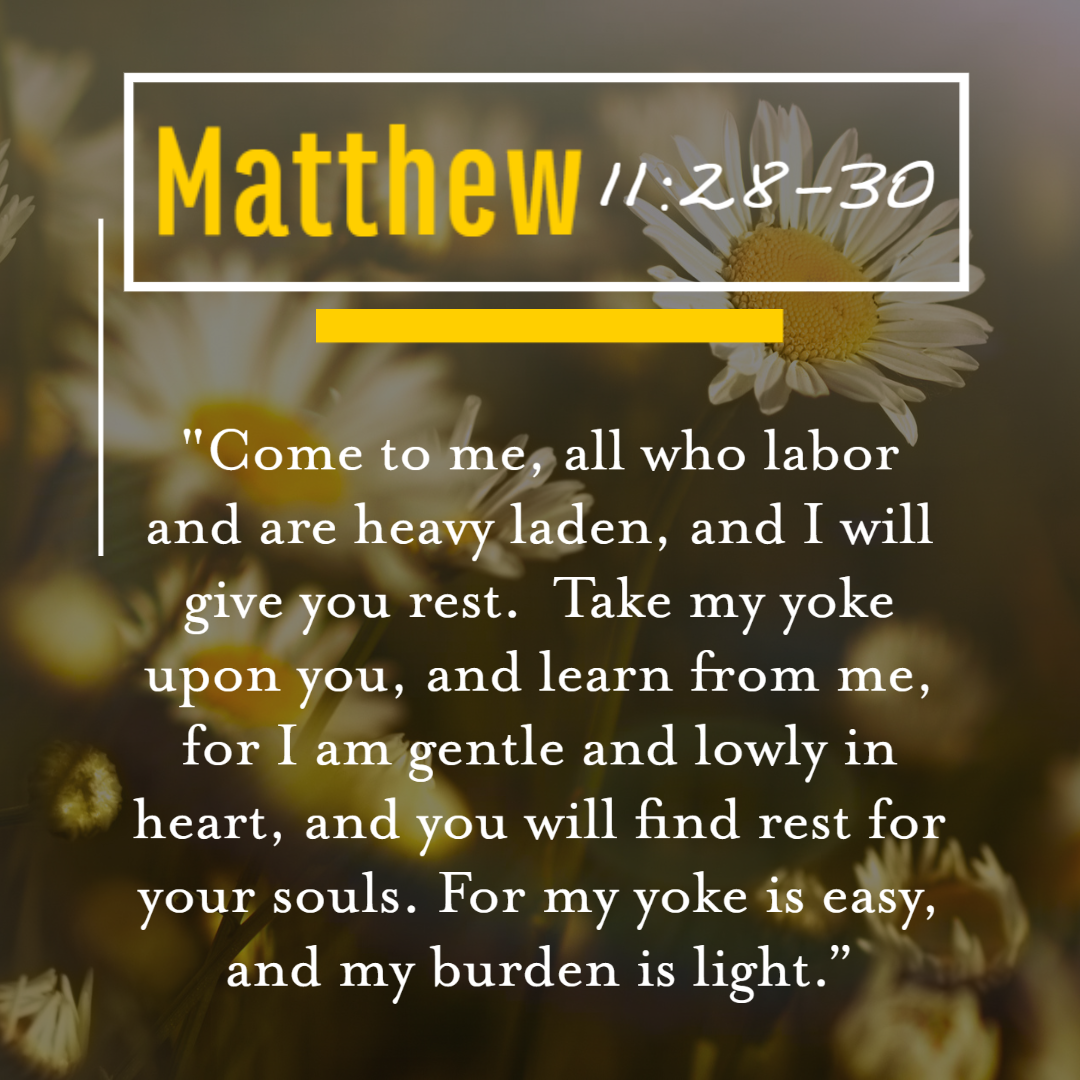
Throughout May, we were talking about the idea of a new passion and deeper rest through the gospel. In Matthew 11, Jesus is telling us to come to Him and He'll give us rest. Because Jesus' work was finished on the cross, He is able to give us true rest.
As we wrap up this book series, let's reflect on this quote from Timothy Keller about the gospel's impact on our worldly work:
"You can accept gladly whatever level of success and accomplishment God gives you in your vocation, because he has called you to it. You can work with passion and rest, knowing that ultimately the deepest desires of your heart---including your specific aspirations for your earthly work---will be fulfilled when you reach your true country, the new heavens and the new earth. So in any time and place you can work with joy, satisfaction, and no regrets."
We hope that this study was fruitful for you, and you're able to truly see how our everyday jobs are connected to God's work. What was a key takeaway you have from this study?




